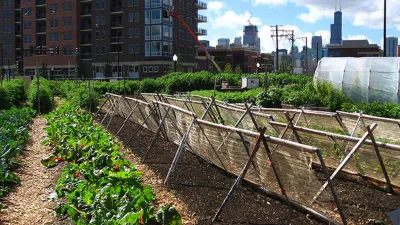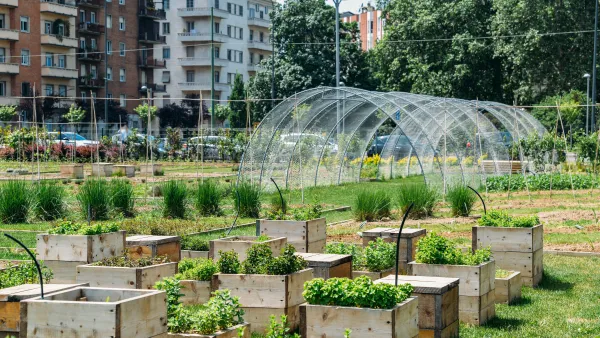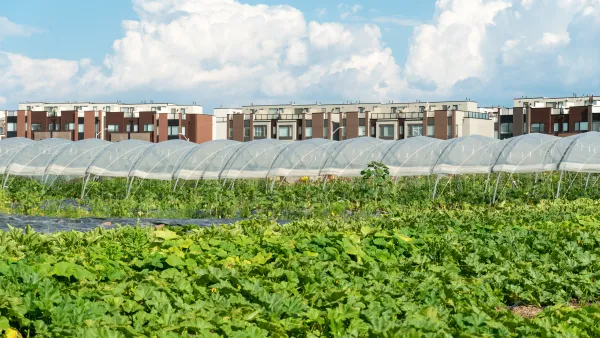Throwing cold water on the latest "techno-optimism" for indoor, urban agriculture.

Joe Cortright writes of his skepticism about urban farming—despite the popularity of "techno-optimistic stories about how a new era of hyper-local food grown in your neighborhood or very nearby." The latest example of which, and the inspiration for Cortright's response, is an article by Adele Peters for Fast Company: "Has This Silicon Valley Startup Finally Nailed the Indoor Farming Model?"
"While the story is replete with VC-pitch based talking points about the efficiency of some aspects of the indoor farming model–purportedly 1 percent as much water use as field crops, 30 miles to the consumer, not 3,000, plus [Plenty] uses LED lights are 64 times more cost-effective than those available a few years ago–one fact is conspicuously missing from the narrative," writes Cortright. That is: "How much will consumers be asked to pay for indoor-grown kale and basil?"
Cortright's concern is with the "dubious" economics of urban agriculture. According to his calculations, urban farming has to 100 times more efficient than conventional farming to cover the cost of land. Instead of a game changer of sustainability, Cortright predicts indoor farming will remain a niche technology for specialized, premium products.
FULL STORY: Dirt cheap.

Analysis: Cybertruck Fatality Rate Far Exceeds That of Ford Pinto
The Tesla Cybertruck was recalled seven times last year.

National Parks Layoffs Will Cause Communities to Lose Billions
Thousands of essential park workers were laid off this week, just before the busy spring break season.

Retro-silient?: America’s First “Eco-burb,” The Woodlands Turns 50
A master-planned community north of Houston offers lessons on green infrastructure and resilient design, but falls short of its founder’s lofty affordability and walkability goals.

Test News Post 1
This is a summary

Analysis: Cybertruck Fatality Rate Far Exceeds That of Ford Pinto
The Tesla Cybertruck was recalled seven times last year.

Test News Headline 46
Test for the image on the front page.
Urban Design for Planners 1: Software Tools
This six-course series explores essential urban design concepts using open source software and equips planners with the tools they need to participate fully in the urban design process.
Planning for Universal Design
Learn the tools for implementing Universal Design in planning regulations.
EMC Planning Group, Inc.
Planetizen
Planetizen
Mpact (formerly Rail~Volution)
Great Falls Development Authority, Inc.
HUDs Office of Policy Development and Research
NYU Wagner Graduate School of Public Service




























